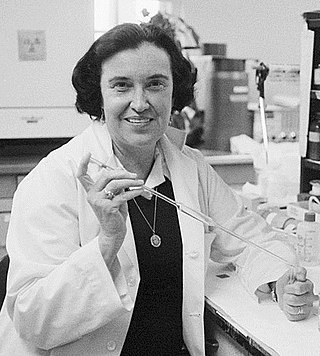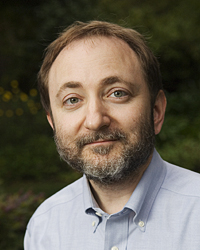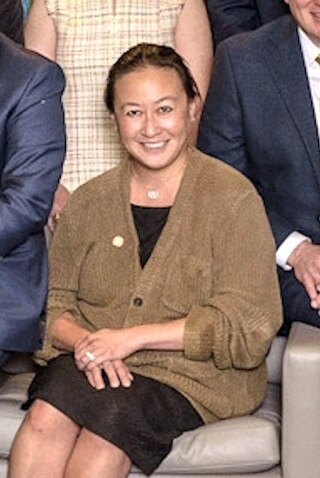
Ferid Murad is an American physician and pharmacologist, and a co-winner of the 1998 Nobel Prize in Physiology or Medicine.

Rosalyn Sussman Yalow was an American medical physicist, and a co-winner of the 1977 Nobel Prize in Physiology or Medicine for development of the radioimmunoassay technique. She was the second woman, and the first American-born woman, to be awarded the Nobel Prize in Physiology or Medicine.

The Harvard School of Dental Medicine (HSDM) is the dental school of Harvard University. It is located in the Longwood Medical Area in Boston, Massachusetts. In addition to the DMD degree, HSDM offers specialty training programs, advanced training programs, and a PhD program through the Harvard Graduate School of Arts and Sciences. The program considers dentistry a specialty of medicine. Therefore, all students at HSDM experience dual citizenship between Harvard School of Dental Medicine and Harvard Medical School. Today, HSDM is the smallest school at Harvard University with a total student body of 280.

Stanley Alan Plotkin is an American physician who works as a consultant to vaccine manufacturers, such as Sanofi Pasteur, as well as biotechnology firms, non-profits and governments. In the 1960s, he played a pivotal role in discovery of a vaccine against rubella virus while working at Wistar Institute in Philadelphia. Plotkin was a member of Wistar’s active research faculty from 1960 to 1991. Today, in addition to his emeritus appointment at Wistar, he is emeritus professor of Pediatrics at the University of Pennsylvania. His book, Vaccines, is the standard reference on the subject. He is an editor with Clinical and Vaccine Immunology, which is published by the American Society for Microbiology in Washington, D.C.

Paul Edward Farmer was an American medical anthropologist and physician. Farmer held an MD and PhD from Harvard University, where he was a University Professor and the chair of the Department of Global Health and Social Medicine at Harvard Medical School. He was the co-founder and chief strategist of Partners In Health (PIH), an international non-profit organization that since 1987 has provided direct health care services and undertaken research and advocacy activities on behalf of those who are sick and living in poverty. He was professor of medicine and chief of the Division of Global Health Equity at Brigham and Women’s Hospital.
Albany Medical College (AMC) is a private medical school in Albany, New York. It was founded in 1839 by Alden March and James H. Armsby and is one of the oldest medical schools in the nation. The college is part of the Albany Medical Center, which includes the Albany Medical Center Hospital. Along with Albany College of Pharmacy, Albany Law School, the Dudley Observatory, the Graduate College of Union University, and Union College, it is one of the constituent entities of Union University.

Solomon Halbert Snyder is an American neuroscientist who has made wide-ranging contributions to neuropharmacology and neurochemistry. He studied at Georgetown University, and has conducted the majority of his research at the Johns Hopkins School of Medicine. Many advances in molecular neuroscience have stemmed from Snyder's identification of receptors for neurotransmitters and drugs, and elucidation of the actions of psychotropic agents. He received the Albert Lasker Award for Basic Medical Research in 1978 for his research on the opioid receptor, and is one of the most highly cited researchers in the biological and biomedical sciences, with the highest h-index in those fields for the years 1983–2002, and then from 2007 to 2019.
Solomon Aaron Berson was an American physician and scientist whose discoveries, mostly together with Rosalyn Yalow, caused major advances in clinical biochemistry. Five years after Berson's death, Yalow received a Nobel Prize, which cannot be awarded posthumously, for their joint work on the radioimmunoassay.

Andrew Zachary Fire is an American biologist and professor of pathology and of genetics at the Stanford University School of Medicine. He was awarded the 2006 Nobel Prize in Physiology or Medicine, along with Craig C. Mello, for the discovery of RNA interference (RNAi). This research was conducted at the Carnegie Institution of Washington and published in 1998.

Erica Frank is a U.S.-born educational innovator, physician, medical and educational researcher, politician, and public health advocate. Since 2006, she has been a professor in the Faculty of Medicine at the University of British Columbia (UBC); she is the Inventor/Founder of NextGenU.org.
Walter Michael Bortz II is an American physician and author who teaches medicine at Stanford University. He conducts research on aging and promotes the possibility of a 100-year lifespan.

Events from the year 1846 in the United States. In this year, the United States declares war on Mexico, starting the Mexican–American War.

Eric D. Green is an American genomics researcher who had significant, start-to-finish involvement in the Human Genome Project. He is the director of the National Human Genome Research Institute (NHGRI) at the National Institutes of Health (NIH), a position he has held since 2009. Green is an ardent St. Louis Cardinals fan.

Henry Harrington Janeway was an American physician and pioneer of radiation therapy.
The Dr. Nathan Davis Awards are presented annually by the American Medical Association (AMA) and awarded to elected and career public servants in national, state, and local governments for outstanding government service. These awards are named for the founder of the American Medical Association, Nathan Smith Davis.
Jesse Roth is an American physician and endocrinologist, currently at The Feinstein Institute for Medical Research. He received his BA in 1955 from Columbia University, his MD in 1959 from Albert Einstein College of Medicine. He completed a residency in internal medicine at Barnes-Jewish Hospital in 1961, and a fellowship in endocrinology at Bronx Veterans Administration Medical Center in 1963. Beginning with his fellowship work with Solomon Berson and Rosalyn Yalow, Jesse Roth's research career focused on insulin action. His laboratory at the National Institutes of Health elucidated much of what we know of the structure of the insulin receptor and intracellular mechanisms of insulin action. Jesse Roth is a fellow of the American College of Physicians and was a recipient of the 1980 Gairdner Foundation International Award and in 1982 he received the American Diabetes Association's Banting Medal for Scientific Achievement.

Elaine Ann Ostrander is an American geneticist at the National Human Genome Research Institute (NHGRI) of the National Institutes of Health (NIH) in Bethesda, Maryland. She holds a number of professional academic appointments, currently serving as Distinguished and Senior Investigator and head of the NHGRI Section of Comparative Genomics; and Chief of the Cancer Genetics and Comparative Genomics Branch. She is known for her research on prostate cancer susceptibility in humans and for conducting genetic investigations with the Canis familiaris —the domestic dog— model, which she has used to study disease susceptibility and frequency and other aspects of natural variation across mammals. In 2007, her laboratory showed that much of the variation in body size of domestic dogs is due to sequence changes in a single gene encoding a growth-promoting protein.
Paul D. Blumenthal is an American physician, researcher, cervical cancer prevention advocate, and abortion provider who is certified in obstetrics and gynecology. He is known for his cervical cancer, abortion, and contraception research. He is also known for his commitment to international women’s health—evidenced by his contribution to public health initiatives in over 30 countries.
Mark Schuster is the Founding Dean and CEO of the Kaiser Permanente Bernard J. Tyson School of Medicine located in Pasadena, California. Schuster assumed his position in 2017, and the school opened in July 2020. Schuster is a physician-scientist known for his work on child, adolescent, and family health.

Jennifer Fan-Yu Tseng is an American surgical oncologist and gastrointestinal surgeon. In 2017, she became the first woman in Boston to lead surgical units at a medical school and teaching hospital.












